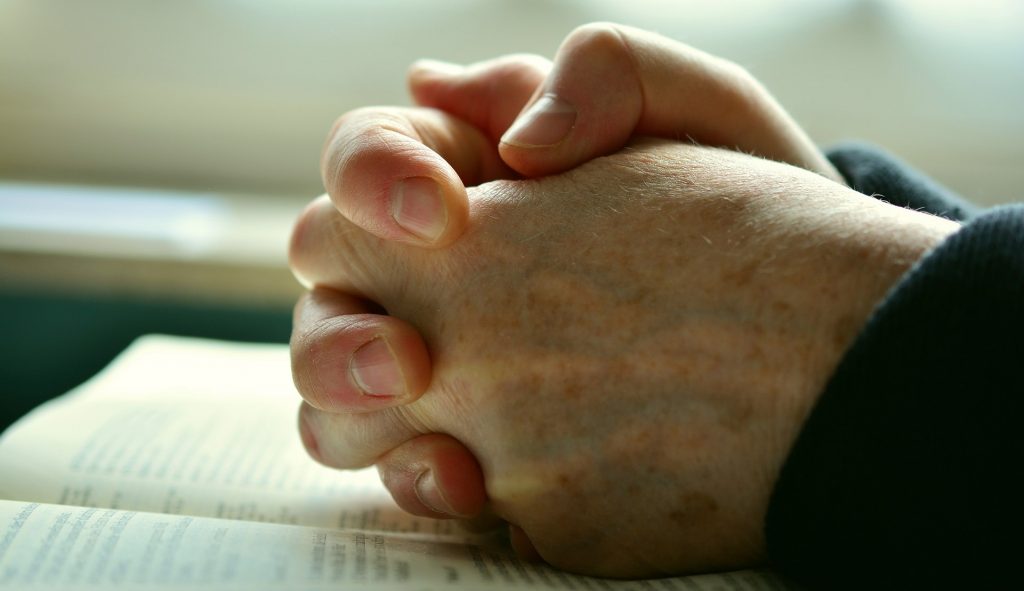
Are you burdened by an acute sense of happiness-clobbering guilt? Does the pain of shame rear its ugly head just about every time you start feeling okay about yourself? Maybe a little clarity can help lift some of the fog.
3 Types of Guilt
There are, in a sense, really three different kinds of guilt with significant differences in source and effect. Read on to see what I mean.
1. Social Guilt
Social guilt is the public shame a society attaches to behavior deemed unacceptable for public consumption. It is the guilt associated with violations of social standards of conduct. Social guilt makes you feel bad about spitting on sidewalks or motivates desirable social behavior like keeping lawns mowed and giving up seats to the elderly on a bus. The problem is when society accepts bad ideas, like the black codes of segregation in the U.S. and public mores in Nazi Germany in the 1930s.
2. Degrading Guilt
This is a self-imposed kind of guilt that goes right by self-correction straight to self-condemnation. It’s the kind that says, “Not only did I do that, I am that! It’s not that I’ve sinned, I’m a sinner. It’s not that I’ve done something trashy, I am trash. I’m good for nothing. Why bother even trying anymore?” It is self-assigned guilt expressed as self-defeat and self-abuse. It inspires nothing but surrender and self-pity and self-disgust. Self-worth is attacked and demoralized. It is wholly negative and crippling and leads to nothing positive.
3. Instructive Guilt
Then there is the guilt that may be the uninvited intruder, but is a friend and ally nonetheless. This form of guilt is the moral discomfort we feel when we violate universal principles of morality. It is guilt unadorned, free from the added weight of self-abuse or social pathologies. It is the voice of conscience and is spiritual in nature and intent. It is a light in the darkness of moral indecision or moral lapse. It is the pangs of a conscience that has been compromised.
An analogy:
When I was about 25 years old, newly married and poor, I fried the engine in my Honda Civic. How? I ignored the oil warning light. Well, truth be told, I didn’t actually ignore it as much as I failed … continually … to do anything about it. Okay, I ignored it. But I was busy! I was working a job at night and going to school full time. There were books to read, papers to write, exams to study for, a degree to earn. Who had time for oil?
The Dashboard of our Souls
That, my friends, is the role of instructive guilt: It’s the warning light on the dashboard of our souls. It warns and instructs. It motivates goodness and discourages indecent behavior. It can play an important part in our personal development as we travel life’s path toward more happiness as it nudges us when something is amiss in our lives.
It is the heat of the stove that keeps us from serious burn … if we heed its warnings. I didn’t heed the light on my car dashboard and lost a very expensive engine. But it was only an engine. It hurt, but was replaceable. But ignoring instructive guilt can lead to far worse consequences, some of which are not so easily fixed.
Differentiating Guilt
But how do we discern one from the other? The simple answer is that it really does come down to practice. The more time we spend nurturing our conscience and responding to the promptings we receive to stop doing something or start doing something long neglected, the better we will be able to recognize one inner voice from another.
But there are a few habits or practices we can work on to quiet the self-destructive voice of self-inflicted guilt and shame and amp up the volume of the spiritual voice of conscience a bit.
3 Ways of Developing a Finely-tuned Spiritual Conscience
1. Read deeply and regularly from wisdom, scriptural and moral literature. By connecting with moral and spiritual principles, the heart’s sensitivity to the conscience is strengthened. It will also school your conscience, waking it to moral standards and universal principles. Connecting with literature that inspires and instructs and reminds and motivates the higher values in ethics and morals helps fine-tune the conscience and sharpen our spiritual ears to how the conscience “speaks” to us and to what it says.
2. Listen to the inner whisper of your conscience whenever you feel prompted to do something good. The more you listen and act, the more you will be able to discern the difference between the self-talk of self-induced guilt from spiritual insight working through your conscience. As you practice what your conscience nudges you to do, you will come to trust it more and it will repay you by guiding you to even greater truths.
3. Pray and meditate on moral principles and ethical values and on your own state of spirituality. This will also help connect you to your conscience, making you more in-tune with that inner light.
Happy Rewards to a Well-honed Conscience
A conscience that works the way it was meant to work is one that will help keep us living well, treating others kindly, signaling where and when we fall short of universal values of decency and prompting improvement. This way, the machinery of our lives will stay well-oiled, the engine well-maintained, and life filled with more joy, more peace and more happiness.
What do you think?
- Have you suffered under the weight of an over-active sense of guilt?
- Or have you been helped by a friendlier version?
- I would love to hear from you!
- Please share your thought in the comments.
Photo by Pixabay







































amazing post Ken
that’s one of the most detailed posts i read about guilt
keep it up 🙂
Thank you, my friend.
I just think too many people are so torn up by guilt that robs them of a measure of happiness unnecessarily. I WANT people who hurt others intentionally to feel bad. Guilt SHOULD work its magic in their lives. But too many suffer needlessly, for reasons they are not responsible for.
Others misread the pangs of guilt and try to mask and bury the feeling instead of listening to the message the pangs relay. By listening to and acting on the message to make amends for wrongs done, that measure of happiness that was lost can be restored.
I wanted to address the topic for these reasons in the detail I felt would best convey the message I thought appropriate.
Thanks so much for stopping by, Farouk. I’m thrilled you saw value in the effort.
Ken,
I am so glad I was given the opportunity to read this. Recently I have been dealing with some guilt. I can’t really classify it in what you wrote but your tips still applied. I recently lost a loved one who stays far away. No matter how hard I tried I was unable to make the funeral and the feelings are eating me up. Now I feel like my family that is in the area where my uncle stayed are not as close as we used to be. It feels like I lost the connection when I lost my uncle and didn’t show up. I just want to make things right. It wasn’t my fault I couldn’t make it.
Frank, thank you so much for sharing such intimates with us. I had a similar situation when my own uncle passed away and I had to miss the funeral in Hawaii. Some of the family made it (my brother’s family), so I felt represented in some ways.
But I feel it’s important to differentiate feelings of disappointment and regret from guilt. Guilt is the message of blame. It claims responsibility and is a form of reproof for falling short of that responsibility. But if you couldn’t get to the funeral, like I couldn’t, there is no responsibility violated, no wrong meriting the reproof and no fault worthy of blame.
If guilt is the right word for how you feel, my friend, I would suggest giving yourself some slack. It appears there was no moral lapse here. I deeply regretted not being at my Uncle Paul’s funeral. He was a truly great man. But I felt no guilt.
What helped me deal with the regret, however, was Facebook, of all things! I was able to send a message to the whole family expressing my regret and best wishes and prayers. That (or a letter or phone call or text?) may help you feel reconciled to the missed family moment too.
Back 20 years ago or so, a cousin from the same family passed when his plane crashed hopping between islands. I couldn’t make that funeral either — just too poor at the time. But I wrote my Aunt and Uncle a poem expressing my beliefs about death and life after mortality and the like. That seemed to help too.
Best wishes to you, Frank. I hope you are able to come to terms with how you’re feeling soon.
Great post.
I like your description of the role of instructive guilt: It’s the warning light on the dashboard of our souls. The kind of guilt which helps you to make bigger mistakes …
For me this moment of instructive guilt comes the morning after I had some nice meals – a lot more food than I need to fill my tummy. Than the light on the dashboard of my soul is burning red to tell me: eat normal again, so you can feel more energetic again and have more power to concentrate.
Thanks for sharing!
Thanks Marc! Been there, done that! Not a good feeling when you know you should have eaten better. But such indulgences from time to time shouldn’t cause us too much anxiety — no major moral lapse to worry about so long as our health isn’t in serious crisis.
Take care, buddy!
Wonderful article, Ken! I especially love the analogy, 3 ways to develop and happy rewards. I’ve found that guilt is a great teacher and a thief of happiness.
I’ve come to notice that my inner whispering comes not from my head in the form of thoughts, but from my solar plexus area in the form of a knowing or feeling. It’s kind of like, when I live from my head I get into trouble, but when I live from my heart, I have peace and harmony. My practice is in, keeping my focus and attention down in my heart/solar plexus instead of up in my head. I just figured this out during the last year or so and I keep practicing hoping that one day it will be so automatic that I won’t have to remind myself.
Thanks Ken.
Marianne,
Thank you so much for your comments and insight!
While I still think it is important to keep the head plugged in, you’re so right that the whispering of our conscience is usually felt in the “heart.” That’s how I feel it too.
But while I personally believe God to be the originator of that whisper, I believe the brain is also a gift not to be dismissed too lightly. True, it’s easy to OVERthink things or simply to come to the wrong conclusions, but both organs are important and need to be developed carefully. Just reading your blogs, it’s easy to tell you work on both yourself.
This is especially important while still learning to “hear” the gentle nudge of conscience. It’s all too easy to “hear” our own desires instead, and attribute to them a higher origin. This is often when the head needs to have some say in the conversation.
But it sure sounds like your heart is a wonderful place to live by, so keep living from that pace!
Best wishes!